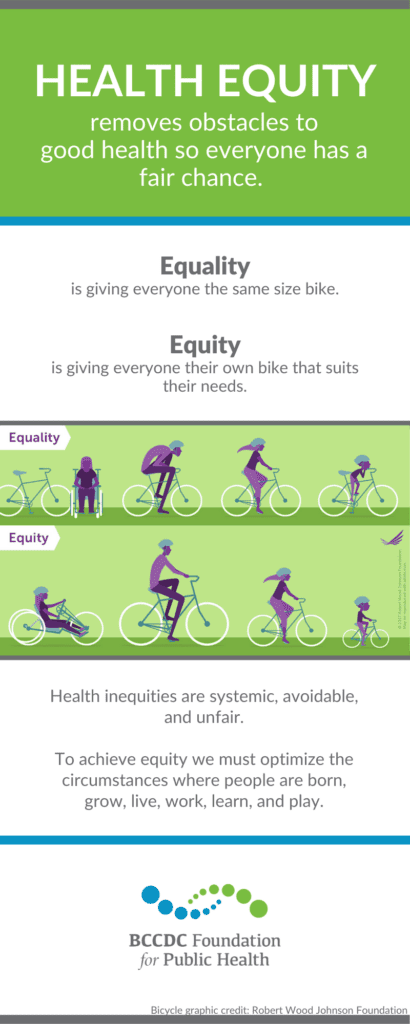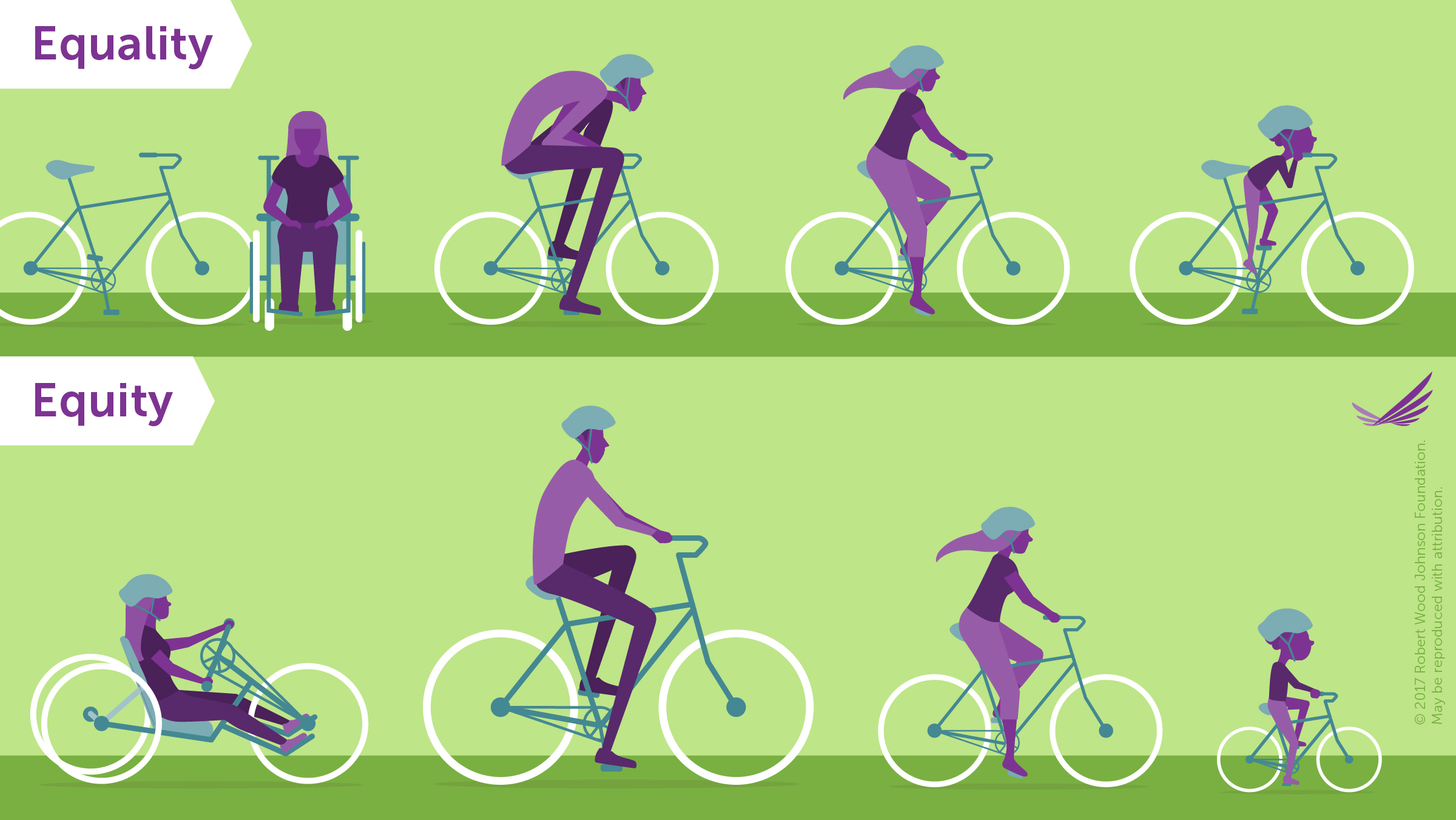Let’s talk a bit about health equity. What is it and why is it so important?
Health equity means that everyone has a fair and just opportunity to meet their highest health potential. And there should be no disadvantage or barriers to achieving this potential.
It means we all deserve the same opportunities no matter our life circumstances – where we are born/live, the colour of our skin, our gender, our age, our economic or social status, what level of education we have – any factor that we identify with should never create an unfair situation that leads to poorer health outcomes. Equity means we get rid of the avoidable, unfair, or fixable differences among groups of people and in doing so create a level playing field for everyone to achieve their full potential. No matter what.
But equality and equity are not the same. Think about the bicycle example*. Equality is giving everyone the same bike, but equity is giving everyone their own bike that suits their needs. Thinking the same things will work for everyone is the same as expecting everyone to be able to ride the same bike. Sure, having a bike is great. But not if you can’t ride it. We need to create health solutions, resources and opportunities that are more inclusive so we don’t offer everyone the same bike but that offer everyone an opportunity to ride their own bike.

So what does that really mean and where do inequities come from?
About 75% of our overall health is determined by social factors, leading to health differences for people of different groups. When people are disadvantaged from achieving health due to social determinants such as race, gender, sexual orientation, or income, inequitable situations are created. Health inequities are systematic, avoidable, and unfair.
What can we do about it?
To achieve equity we must optimize the circumstances where people are born, grow, live, work, learn, play – we must remove obstacles to good health so everyone has a fair chance. Although many factors that affect our health lie outside the health sector, access to health services is also a determinant of health. So we must ensure the health system is also equitable, e.g. offers services that are accessible, available, and acceptable. This is also part of achieving health equity.
We believe that public health initiatives should have a health equity focus and that our role as a public health charity is to foster this across the work we do, the work we fund and the dialogues we engage in.
So let’s continue this conversation. Let’s #ActivateHealth.
Interested in reading more? Start here and here.
*credit for graphic to the Robert Wood Johnson Foundation
